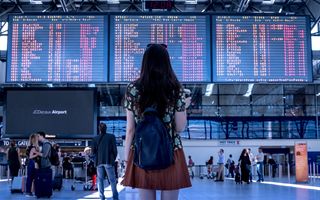(Finance) –
Tourism in Italy represents 13% of GDP cwith a turnover, including related industries, of 255 billion euros and 3.5 million employees (ISTAT data), i.e. almost 15% of the country’s total workforce. Italy is one of the main global tourist destinations, with over 134 million arrivals and 451 million presences in 2023. Compared to the previous year, there was an increase of 13.4% (16 million more than 2022) and 9.5% attendance with 39 million more tourists in our country. An important growth also compared to the pre-pandemic: compared to 2019 there was a growth of 2.3% in arrivals and 3.3% in presences.
Fiavet Confcommercio has placed the role ofthe incoming operator at the center of its TTG 2024 conference which is entitled, precisely, “The role of incoming operators for the country’s economy and the challenge to overtourism” the TTG 2024 S conferenceattended by Ivana Jelinic, CEO of ENIT; Giampiero Campajola, president of Fiavet Friuli Venezia Giulia and head of the Incoming working group; Giancarlo Reverenna, president of Fiavet Veneto and travel agent specializing in incoming.
Foreign tourists have returned to overtake domestic tourism representing 52.4% of the market share. Their economic weight is decisive: according to ISTAT and ENIT data in 2022 there were 74.2 million international tourists in Italy, who spent around 44 billion euros, while Italian tourism saw 50 million travelers leave who spent a total of 25 billion euros.
“This year Enit promoted tourism at all international fairs through workshops, events and communication – declared Ivana Jelinic, CEO of Enit – especially travel agencies have the opportunity to have support within the offer system , because abroad we are not ENIT: we are Italy”. “ANDnit conveys through international media the Italian imagination like the culture of the tourist of that country wants to read it, which is why Italy is told differently in every territory in which we promote ourselves – added CEO of Enit – and also in media communication, our work is aimed to support operators”.
The president of Fiavet Confcommercio, Giuseppe Ciminnisi he insisted on the importance of this joint international promotion “since tourism represents not only a source of income, but also a way to promote the culture, food and wine products, artisan products and heritage of our country”. “Gthe incomin operatorsg – he continued – play a crucial role in this process, since we are the first to come into contact with visitors and we have the responsibility to promote conscious tourism, diversifying the tourist offer, encouraging visitors to discover lesser-known destinations and to visit during the low season”. President Ciminnisi then focused on overtourism, citing some examples of digital and correct management of flows, as for example occurs in Val di Fassa. However, this management in the Center and South was very complicated due to some unplanned resolutions which provide, to stem overtourism, the simple increase in costs, especially in Rome where bus entry fees have tripled. “The measures taken on groups this summer in Venice, the increase in the tourist tax, in local transport are not measures that will stop the problem, there is an urgent need for shared planning with the institutions.
“In the long term – continued the president – these decisions we are taking today will change tourism in a different direction from the one Europe is calling us to with the 2030 objectives, i.e. sustainable tourism on an environmental and social level”.
Many operators do not work with high profile segments “and it is not possible that in the future, the world of travel will belong only to those who can afford taxes and price increases: the world belongs to everyone and the Italian tourist offer is transforming into something distorted, because money cannot be the creator of the selection of beauty that belongs to Italy”.
“In all of this, organized tourism has a strategic role – continued Giampiero Campajola, president of Fiavet Friuli Venezia Giulia – in particular travel agents who offer a unique value in terms of personalized experience, are at the forefront for the promotion of itineraries always new ones that they present to foreign travel agencies and tour operators, contributing to a more equitable distribution of tourist flows in the area and to the valorisation of local suppliers”.
On the topic of overtourism Giancarlo Reverenna, president of Fiavet Veneto and travel agent specializing in incoming, also spoke.
Overtourism, in fact, it not only damages the environment and local communities, but can also reduce the perceived value of the destination itself, negatively influencing the economy in the long term. The strategic role of incoming operators against overtourism in the future will be to promote lesser-known destinations, lightening the burden on the more popular locations.
Collaboration with the institutions however, it is of vital importance to educate visitors on responsible behavior and greater awareness of the local context, to encourage collaborations between operators and local authorities at all levels, to promote sustainable and innovative tourism policies. “Indispensable in this sense – declared Giancarlo Reverenna – is the use of data and digital technology for the management of tourist flows, the promotion of travel in the low season, the booking of visits at less crowded times and the monitoring of the environmental impact and social aspects of tourists”. “Travel agencies already involve local communities to create sustainable tours close to local traditions, but they can also start permanent operational tables with Municipalities, Regions and Enit, as an operational tool of the Ministry of Tourism, to encourage dialogue , and could identify shared solutions in order to create training programs for tourist guides and local operators on how to manage flows in a sustainable way” added Reverenna.
Fiavet Confcommercio has therefore drawn up a decalogue to address overtourism: diversify, deseasonalize, collaborate, be sustainable, enhance the territory, create dedicated tourism products, manage infrastructure.
